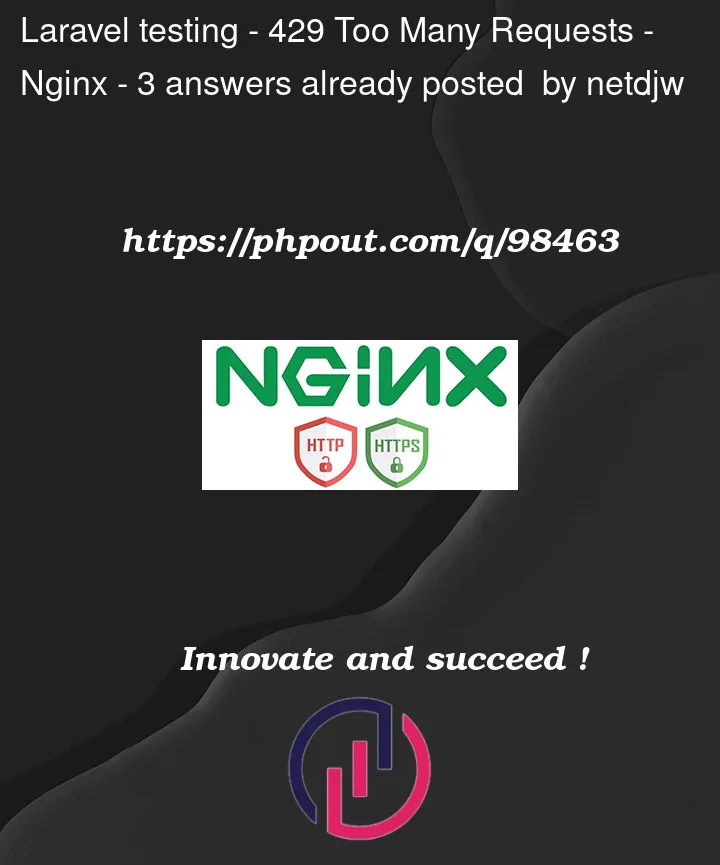As I move forward in my Laravel project I have several tests for controllers and now I’m facing with this issue.
Some of my tests are failing with this message:
Expected response status code [200] but received 429.
Failed asserting that 200 is identical to 429.
I tried to solve with these methods:
- Add
withoutMiddleware()toTestCase.php:
public function setUp(): void
{
parent::setUp();
$this->withoutMiddleware(
ThrottleRequests::class
);
}
- Add
REQUESTS_PER_MINUTEtophpunit.xml:
<phpunit>
<php>
...
<server name="REQUESTS_PER_MINUTE" value="500"/>
</php>
</phpunit>
- Change my dockerized nginx config for this:
server {
location ~ .php$ {
limit_req zone=one burst=5;
}
}
limit_req_zone $binary_remote_addr zone=one:10m rate=100r/s;
Neither solution helped.
I don’t want to change the Laravel’s throttle settings only because of testing. I think here need to be a valid solution for this without changing the framework’s settings.
Any suggestion how can I solve this issue?




3
Answers
My solution to this, although not the most elegant was to replace the ThrottleMiddleware with my own and checking the env for testing, effectively disabling laravel’s throttling for for phpunit. :
You will then need to update your
kernel.phpto use your new class e.g.Frank’s solution works but makes not possible to use named limiters. Code below passes correct arguments list and allow to detect named limiters
I was currently facing this same issue testing with Laravel 9.
I solved it adding inside the ‘configureRateLimiting()’ method in ‘RouteServiceProvider.php’ the following code:
Replace the ‘XX’ with the max amount of API requests per minute you want to allow during testing.
After that run:
And:
I hope this helps!